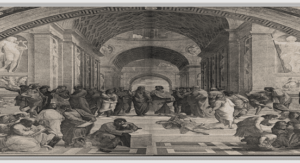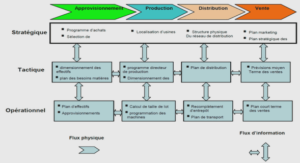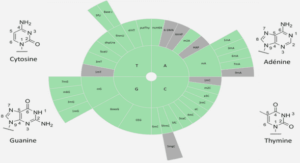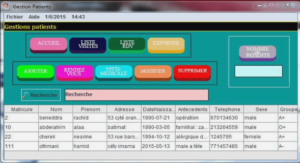Cultural Revival in Things Fall Apart (1958) by Chinua Achebe and The Dark Child(1953) by Camara Laye
SOCIAL ORGANIZATION IN
Things Fall Apart AND The Dark Child The social organization of a community is the composition of that society. That is to say how it is structured. In other words, it opines how a group of people is flocked together in a given place, how they live together with the same aim, the same destiny and the same perception of life. This state of togetherness demands a certain order that is the foundation and the pedestal for the ruling of that community. Indeed, each community has its own social organization that is specific to it and probably is different from the others. In the novels under study, we notice well-organized societies in both the Igbo and the Malinke that will be explored so far. 7 A. Communal life Very little was known about Igbo‟s communal life because it is not largely developed; but even if it is less spoken in the novel, we must not loose our sight of its existence because communal life is there present in any given community. Communal life is the interactions that exist between people within the same community. Those people most of the time are united by blood ties or they are put together in senses of brotherhood, fatherhood and motherhood which are the case among the Igbo and the Malinke. Before the coming of the Europeans in Africa for colonial reasons, the Igbo-speaking people were not united as single people, but lived in small-dispersed compounds in the rain forest, built up of clusters of huts belonging to the same patrilineage. The largest political unit was the village group averaging about 5000 persons who shared a common market, meeting place and a common beliefs and cults. These village groups were ruled by a council of elder, age grade, lineage heads and influential wealthy men. In reality this lack of unification of the Igbo community has brought about the facile intrusion of the colonists and had triggered off the dismantlement of the basement of the community. That is what Don Ohandike tends to demonstrate in the prologue of Things Fall Apart: The striking feature of Igbo society was the lack of political structures. The Igbo lived in autonomous villages and towns, ruled by their elders. With a few exceptions, they organized themselves in patrilineage- lineage groups organized along lines of descent from father to son. Relationship were based on blood ties, and each person traced his or her descent to three groups.12 One cannot talk about communal life without mentioning solidarity that prevailed amongst people in the same community. The black race, for a long time had been known for his value of solidarity. In Igbo community, it is a crucial element of survival. Whenever there is somebody or a family in need, be it food shortage, disease or a calamity, it is to the inhabitants to intervene and to come to the rescue. It seems to be the case with Okonkwo and Nwakibie, a wealthy man in Okonkwo‟s village Umuofia who has three huge barns, nine wives and thirty children. When the harvests were not good that year, Okonkwo goes and paid him a visit. The root cause of the visitation is to ask him for some yam seeds for the next rainy season. « It was for this man that Okonkwo worked to earn his first seed yams. […]. „Nwa 12 Chinua, Achebe: Things Fall Apart, London , Heinemann, 1958; p. 22. 8 ayi‟, he said. „I have brought you this little kola. As our men say, a man who pays respect to the great paves the way for his own greatness. I have come to pay you my respects and also to ask a favour. » 13 In reality the most typical case of solidarity can be drown from Achebe‟s novel Arrow of God 1964. In that novel, the author draws the reader‟s attention on two different clans: people in Okpery and those in Umury, the former being the first settlers and when the latter come to join, they are given a plot of land where to live and to farm and then are allowed to share with people in Okpery their gods and deities. « I know, he told them, my father told this to me that when our village first come to live the land belonged to Okpery, it was Okpery who gave us a piece of their land to live in. They also gave us their deities, their Udo and their Ugwugwu…» 14 Indeed, solidarity is everywhere present in Igbo life. In case of ceremony, every relative to the rejoicing family bring gifts for help. The gift can be a sufficient portion of maize, rice or yam, coco yam or even palm-oil. It can also be an animal (ox, goat or fowl). At the eve of the ceremony, everybody, boys and girls, men and women has his role to play and everybody get involved in the task of food cocking. In the novel, the wedding ceremony of Obierika‟s daughter is an illustration. As soon as the day broke, the breakfast was hastily eaten and women and children began to gather at Obierika‟s compounds to help the bride‟s mother in her difficult but happy task of cocking for the whole village. Some of the women cocked the yams and cassavas, the others prepared vegetable soup Young men pounded the foo-foo soup, split fire wood The children made endless trips to the stream.15 As far as gift is concerned every relative brings something to give to the bride mother or father. Nwoye‟s mother carried a basket of plantains and coco-yams, a cake of salt and smoked fish which she would present to Obierika‟s wife. Okonkwo‟s youngest 13 Ibidem, p 14. 14 Chinua, Achebe: Arrow of God. London, Heinemann, 1964. p. 19. 15 Things Fall Apart, Op. cit; p. 7. 9 wife, Ojuigo, also had a basket of plantains and coco-yams and a small pot palmoil. Their children carried pots of water.16 Similarly, whenever a natural catastrophe occurs to the village or to a family, relatives are bound to intervene. For example, when there is a fire in somebody‟s house all the villagers assist that family. They first come at rescue and try to set the fire off, but if they do not manage to do so and that the fire had burned everything down, each of them try his best to give the damaged family be it food, garment or whatever be it may, and then men gathered to plan how to build a new house for that family. This seems to be the case with Okonkwo when inadvertently he kills a clansman and is chase out of Umuofia with his family to settle at Banta, his mother land. There upon he was helped by his best friend Obierika and others clansmen to collect all his goods and put it into Obierika‟s barn. Besides when Okonkwo gets to Banta he was warmly welcomed by the inhabitants most definitely Uchendu his uncle and his sons. By the way he is helped to build a new house and he is given a plot of land to cultivate during the coming raindrops. Nevertheless, talking about communal life, we must pay attention that there is a cast- system developed by the Igbo community. That cast is upon people called “Osu”. The “Osu” is a lineage amongst the Igbos that is shunned by the community. An Osu does not have the same prerogatives as the so-called “clean lineage”. It is considered as taboo and must not interfere with the clean one. Here is a definition given to Osu in the novel: He was a person dedicated to a god, a thing set apart- a taboo forever, and his children after him. He could neither marry nor be married by a free-born. He was in fact an outcast in a special area of the village, close to the Great Shrine. Whenever he went he carries with him the mark of his forbidden cast-long tangled and dirty hair. A razor was taboo to him. An Osu could not attend an assembly of the free-born, and they, in turn could not shelter in his roof. He could not take any of the four title of the clan, and when he died he was buried by his kinds in the Evil Forest.17 16 Ibidem, p. 78. 17 Ibidem, p.111. 10 There are many details in Achebe‟s novel which show that communal life is well developed by Igbo people. They used to live together they used to help each other through principles such as: solidarity and brotherhood. So what is it about for the Malinke in The Dark Child? Before getting in the core of our analysis of what communal life is about among the Malinke, we have deemed it wise to talk about the origin and the history of the Malinke. The Malinke are a Mande-speaking group. They are also commonly referred to as Mandinka, Maninka, Manding, Mandingo, and Mande. All these words are names given to the Malinke. They live in areas of Sub-Saharan Africa that have a history of agricultural settlement dating as far back as 7000 years. The Malinke area location is the territory covering the Gambia, Senegal, Mali, Guinea Bissau, Guinea, Sierra Leone, Liberia and Ivory Coast. The Malinke are heirs to the great Mali Empire, a medieval merchant empire that flourished from the thirteenth to the sixteenth century and greatly influenced the history of western Africa. Malinke territories in the northern region of Africa were brought under Muslim control in the eleven century. The renowned city of Islamic teaching, Timbuktu, was also part of the vast and prosperous Mali Empire. The empire declined in the fifteenth century and was gradually absorbed by the Songhai Kingdom, which extended to the seventeenth century.
Social Structure
The ancient Igbo community did know neither kingdom nor kingship compared to the other Nigerian‟s communities such as the Hausa and the Yoruba where it used to be. In reality Igbo people did not have a supreme authority highly ranked at the top of the ladder who keeps all the decision-makings and the ruling of the community. They did not have any centralized government. But the Igbo were organized in such a way that security and stability was well developed. What is called “Cross-Cutting Ties” by Ohandike is the politico-judicial system developed by the Igbo. He writes: The Igbo communities were known as extremely democratic, yet they had no centralized governments. How then did they achieve democracy? The fifth most important cross-cutting institutions were: the council of elders, the age-groups, and the council of chief, women‟s associations and the secret societies.22 The judicial power developed by the Igbo is called the Cross Cutting Ties. It is a body composed of five branches such as: the council of elders, the council of chiefs, the age-grade, the women association, and the secret society. For centuries, age grades have played an important role in Igbo life. The cross cutting ties are formed by people born within three to five years from each other, and are meant to create a peer group, foster unity and responsibility, acting mainly as socio-cultural institution. This repartition of Igbo community has helped for centuries to promote peace and security and to defend the sense of communal life. Indeed, each branch is independent from the others, there is no branch that is at the command of the other but there are some regulations to abide by. For example, when the Ugwugwu is settling peace between two clansmen, they give much respect to the disguised body and to answer correctly the questions addressed to them. The most important branch is likely to be the council of chiefs (the acquisition of titles). Only people with title are allowed to take part in the council. Then to acquire a tittle demands much efforts and it remains a long process starting from childhood to adulthood. A title is not transmitted through hereditary way but it is something that the holder deserves. Indeed, according to Igbo people the more tittles somebody gets, the more acknowledged as great man and chief he becomes and then is fit for representing the community abroad. It seems to be what Ohandike tries to explain when he writes: 22 Chinua, Achebe: Things Fall Apart, Op. cit; p. 23. 15 The Igbo people emphasized personal achievement; hereditary succession to title would have contradicted notions of leadership and fair play. Some Igbo men managed to acquire prestigious titles, enabling them to be acknowledged as great men and chiefs. Titled chiefs formed their own councils and represented their communities to outsiders.23 For every Igbo man the success in life passes intrinsically through the council of elders and one have to undergo an ordeal during the long process of life so as to be accepted to the council. Very little a boy, an Igbo begins his life as an apprentice. A young boy accompanies his father or uncle to the farm and renders as much as assistance as he can. As he grows older he learns that marriage, wealth and acquisition of title enable individual to advance socially. Until a man is initiated into certain titles, there are some norms and regulations that he must follow: neither can he dress in certain ways nor take a piece of kola nut before older people. Like the ritual of circumcision among the Malinke, the council of chiefs is a long process in coercion, a test of manhood that enable a man to reach maturity, wisdom and wealth. There are some titles, to acquire them, one need to be wealthy because the taking of the highest title demands the payment of expensive initiation fees accompanied by elaborated feasting and dancing. Throughout Igbo land, a man who fails to progress beyond the most junior titles is a man without status in the eyes of his people. No matter how old he is, they look upon him as a boy. His age mates might make him run errands for them. He might be called after an Agbala (a woman or a man without title). When he dies they burry him without dignity and the mourning period is brief. That is the case of Unoka, Okonkwo‟s father, a lazy and idle man and a drunkard whose notoriety is known by all Umuofia because of his endless borrowing from his clansmen. In reality Unoka is a worthless man during the whole of his life he has gained no title and he always finds it difficult to support his family. Unoka, the grown-up, was a failure. He was poor and his wife and children had barely enough to eat. People laughed at him because he was a loafer, and they swore never to lend him anymore money because he never paid back. But Unoka was such a man that he always succeeded in borrowing more, and pilling up his debts […]. When Unoka died he had taken no title at all and he was heavily in debts. 24 23 Ibidem, p. 26. 24 Ibidem, pp. 4- 6. 16 Status attainment was clearly to the acquisition of wealth through hard-work. To be respected among the Igbo one has to toil and moil. The acquisition of title then goes hand in hand with wealth. Okonkwo the main protagonist has made himself into fame thanks to his relentless devotion to work. He usually goes to his farm from cock crow until hens go to roost. Nwakibie a famous man in Umuofia is a case in point too. There was a wealthy man in Okonkwo‟s village that had three huge barns, nines wives and thirty children. His name was Nwakibie and he had taken the highest but one title which a man can take in the clan. It was for this man that Okonkwo worked to earn his first seed yams.25 The highest title in Igbo community is likely to be the Ozo title (or Eze, Nze, Alo and Ichie). To qualify for the Ozo title a man must have acquired the junior title and is charged all the duties normally assigned and completed the ceremonies connected with the second burial of his father. Thus no man can attain a status that might equal or exceed his father‟s while the latter is alive. An Ozo man was a person who had received the gift of immortality. He was no longer an ordinary human, but a god. To purchase the highest title was, therefor, to be born again, to be admitted into the association of rulers, Out or Ochidie, and to be initiated into the cult of ancestors, Out, Ndichie.26 At the secular level the highest title spares its holder the dignity of manual labor. It guaranties him a seat in the council of chiefs. It reserves for him portions of fees paid by new initiates into the title association and gives him rights to certain portions of livestock slaughtered in his lineage. A titled man is greeted with high sounding salutations such as igwe (his highness) and ogbuefi (he who slaughters bulls). Another branch is the council of elders. It is a group composed of the most ancient men in a lineage. So this council is in charge of matters affecting lineage members and is discussed between older men in a meeting called Ndisie or Indichie. In inter-lineage disputes, elders from the affecting lineages meet to discuss solutions, with the oldest man in the gathering presiding over the authority of the lineage head derives from the group‟s respect for him as the living representative of the founding ancestors. He is the custodian of ancestral lands, the 25 Ibidem, p. 14. 26 Ibidem, p. 27. 17 keeper of the ritual objects that symbolizes political authority and the group‟s spiritual and temporal head. Even though he is the religious, executive, and judicial head of his lineage, he would not act without their approval. No action would be taken unless an issue had been fully argued at a lineage meeting and some degree of consensus achieved. It is just like the Sigawke family in Nervous Condition27 by Tsi Tsi Ndangaremgba. Whenever there is an important issue to discuss, as regard the lineage all its members gather and the oldest person among them has to open the debate. Another one group is the Women‟s association. Women for a long time have been considered as the right side of men. They have as clan as men. They control some spheres just as men control other spheres. Like men the acquisition of title is also important among women. As an illustration, Chielo in Things Fall Apart is the chief priest of the oracle of the cave and the hill. To strengthen this remark, Ohandike‟ statement in the prologue of the novel will be interesting to allude. Women were perceived to possess superior spiritual wellbeing and headed many of the traditional cults and shrines. In Achebe‟s novel for example, the oracle is served by a priestess. Women also gained status by amassing wealth through trading, farming or weaving, and were treated as ndogalanya, wealthy persons.28 Like an Igbo man, every Igbo woman begins her life as an apprentice. From a very young age, a girl assists her mother at home, on the farm or at the marketplace. As she grows older she learns from experiences that hard work, marriage and membership in certain associations enable a woman to advance socially. It is the same with the Malinke during the female rite of circumcision, during the initiation, the mutilated young women are inculcated all the values that a woman should have. One of the most important women‟s associations is Otu omu (the omu society). This association is labeled as an incentive for hard work and only women who have enough wealth to pay for the initiation of the ceremony are accepted to join the group. The members of an omu society act as pressure group in political matters and imposed fines on men and women who disturb the peace of the market place. They punish quarrelsome women and those who break certain taboos, like those prohibiting incest and adultery. As a woman, the leader of the 27 Tsitsi, Dangarembga : Nervous Conditions, Women‟s Press, Ltd, copyright. 1988. 28 Chinua, Achebe: Things Fall Apart, Op. cit; p. 28 . 18 Otu society is allowed to attend the meeting of the council of chiefs and elders and she participates also in discussions affecting the welfare of the citizens. Even if they do not take part in war, they can decide when to urge the male warrior chiefs to start one. Like the omu association, many woman societies set a check and balance in the social and political organization of Igbo community. The power that women exercise over the organization of local trade derives from the fact that most local traders are women. Igbo women organizations uphold gender balance and equality. Their political and social activities are very useful, though men occasionally felt they are contentious. As for the Secret society, every strata of the society have their share. Some are exclusively for men, some for women and others for both sexes. However, the secret society remains quietly unknown, men and women who attend it take the oath of secrecy very seriously. The Igbo people are reluctant to divulging information that might run counter the effectiveness of the secret society. The secrecy that the latter wraps, is similar to Konden Diara in The Dark Child which is a secret that only the initiated are allowed to know. Indeed, if there is no longer secrecy, the ritual would never have its entire reason for living. In judicial matters masked ancestors might appear and pronounce a verdict. It is the case with the Ugwugwu in Things Fall Apart when it intervenes as peace-settler between two clansmen. During the whole process nobody has to contest the judgments, because no one can pretend to be wiser than the disguised spirit. And no one ever disclosed the identity of the individual behind the mask, even if he happens to recognize the voice or the walk of a particular elder. The last group is the Age-group. It is commonly known as ogbo, it is composed of men and women of the same age. It regroups all the inhabitants of a village born within a few years of each other belonging to the same age group. The association is named after a major event this takes place at the time of his member‟s birth. The association is thus a means of dating and remembering events. It also helps assign special duties and responsibilities to the different segments of the community in accordance with the principle of seniority. The junior age-groups (aged 15 and below) do minor jobs like fetching water, cleaning footpaths, sweeping the street etc. Men in the middle age-groups (from about16 to about 40) form the fighting forces. In the event of war, each age-group acts as separate regiments, under the leader who belongs to an older-age group. The middle age-groups also fells and cleared the bush at the beginning of each planting season. The senior age-groups is composed of those aged 40 and above. They are responsible for judicial matters. They usually decide when a 19 village shall go to war, how an offender should be punished, when the various agricultural cycles would open and close, and when the annual festivals would be held. The age-group system promotes respect. Juniors obey the seniors and expect the same treatment when they advance to higher grades. The members of a group act together and the friendship they cultivate in childhood remains intact throughout life.
DEDICACE |





